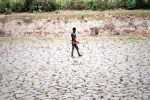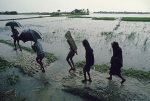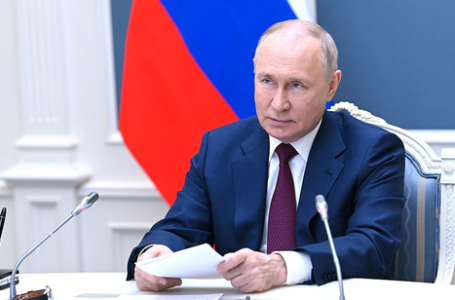Sep 30, 2019
New Delhi: What can be done in the near term to mitigate climate change, and how mitigation actions can be enabled through policy, institution-building and finance will be the main concern of Intergovernmental Panel on Climate Change (IPCC) Working Group III Sixth Assessment Report, whose Second Lead Author meeting began here on Monday.
The Sixth Assessment Report (AR6) will examine topics such as the link between consumption and behaviour and greenhouse gas emissions, and the role of innovation and technology. The report will assess the connection between short to medium-term actions and their compatibility with the long-term temperature goal in the Paris Agreement. It will assess mitigation options in sectors such as energy, agriculture, forestry and land use, buildings, transport and industry, Mr. Jim Skea, Co-Chair of Working Group III said here at a media briefing.
Secretary, Ministry of Environment Forest &Climate Change (MoEFCC) C.K. Mishra dwelt upon the challenges and viable solutions to climate change. He also pointed out that IPCC authors and scientists are working to deliver the most relevant and up-to-date research on climate change mitigation. “Global coalition on innovation and technology is the way forward”, said Shri C.K Mishra.
More than 200 experts/authors including 12 from India and others from around 65 countries are expected to participate in this week-long meeting at New Delhi.
Mr. Jim Skea, Co-Chair of Working Group III highlighted the role of the Sixth Assessment Report. He said “Building on previous Working Group III assessments, this report will emphasize what can be done in the near term to mitigate climate change, and how mitigation actions can be enabled through policy, institution-building and finance”.
The Sixth Assessment Report (AR6) will examine topics such as the link between consumption and behaviour and greenhouse gas emissions, and the role of innovation and technology. The report will assess the connection between short to medium-term actions and their compatibility with the long-term temperature goal in the Paris Agreement. It will assess mitigation options in sectors such as energy, agriculture, forestry and land use, buildings, transport and industry.
The First Order Draft will be available for Expert Review from 13 January to 8 March 2020. The Second Order Draft will be open for Government and Expert Review from 13 July to 13 September 2020, along with the first draft of the Summary for Policymakers. The IPCC Panel is due to consider the Working Group III contribution to the IPCC Sixth Assessment Report at a plenary session on 12 to 16 July 2021.
Each of the three IPCC Working Groups will release their contributions to the Sixth Assessment Report in 2021. A Synthesis Report in 2022 will integrate them together with the three special reports that the IPCC is producing in the current assessment cycle. It will be released in time to inform the 2023 global stock take by the United Nations Framework Convention on Climate Change (UNFCCC) when countries will review progress towards the Paris Agreement goal of keeping global warming to well below 2°C while pursuing efforts to limit it to 1.5°C.
The IPCC is the UN body for assessing the science related to climate change. It was established by the United Nations Environment Programme (UNEP) and the World Meteorological Organization (WMO) in 1988 to provide political leaders with periodic scientific assessments concerning climate change, its implications and risks, as well as to put forward adaptation and mitigation strategies. It has 195 member states.



















